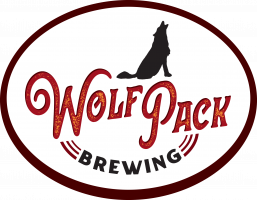Mash Guidelines
|
Amount
|
Description
|
Type
|
Start Temp
|
Target Temp
|
Time
|
|
13 L |
|
Strike |
65 °C |
63 °C |
60 min |
|
28 L |
|
Sparge |
76 °C |
76 °C |
15 min |
Starting Mash Thickness:
2.5 L/kg
Starting Grain Temp:
18 °C |
Priming
|
Method: co2
Amount: 0.83 bar
Temp: 2 °C
CO2 Level: 2.7 Volumes |
Target Water Profile
Pilsen (Light Lager)
Notes
https://beerandbrewing.com/recipe-green-bench-postcard-pils/
DIRECTIONS
Mill the grains and mash at 146°F (63°C) for 60 minutes. Recirculate until your runnings are clear, then run off into the kettle. Sparge and top up as necessary to get about 6 gallons (23 liters) of wort, depending on your evaporation rate. Boil for 90 minutes, adding hops and yeast nutrient according to the schedule. After the boil, conduct a whirlpool step: Add whirlpool hops at 210°F (99°C), stir for 5 minutes to create a vortex, then allow 20 minutes to steep. Then chill wort to about 52°F (11°C), aerate thoroughly, and pitch plenty of healthy yeast. Ferment at 55°F (13°C) until the gravity reaches 1.016, then raise to 60°F (16°C) for diacetyl rest—total fermentation time should be about 2 weeks. Rack to secondary, crash to 35°F (2°C), and lager for 3 weeks. Package and carbonate to about 2.7 volumes of CO2.
BREWER’S NOTES
We started decocting Postcard about two years ago. The single-infusion method makes excellent beer, but we find that these steps offer a more complex malt profile and a more lasting impression.
Decoction Option: Mill the grains and mash at 131°F (55°C) for 20 minutes, then raise to 146°F (63°C) for 30 minutes, then to 158°F (70°C) for 10 minutes. Move up to one-third the mash volume to another kettle, bring it to a boil, and then mix it with the main mash. Mash out should be around 168°F (76°C). Then follow other directions as above.
Fermentation: This is another area where you can experiment. For example, we love the clean profile that 47°F (8°C) gives you, and there’s no need to adjust for a diacetyl rest that cold. We ferment most of our lagers that way, but for Postcard, we prefer the subtle fruity notes that the warmer fermentation gives us in conjunction with the hops.
Water profile: We prefer extremely soft water with minimal mineral content. This way the malt and hops shine in harmonious balance and aren’t fighting against any hardness on the palate.
Grist: If you can’t get Barke, use their base pilsner or experiment with your favorite imported variety. Another fun substitution could be malted corn, or try a cereal mash instead of using flaked. Enjoy!

Last Updated and Sharing

- Public: Yup, Shared
- Last Updated: 2022-02-22 23:24 UTC
For quick copying and pasting to a text based forum or email.
Click the Download as HTML file button below.
Recipe costs can be adjusted by changing the batch size. They won't be saved but will give you an idea of costs if your final yield was different.
|
Cost $ |
Cost % |
| Fermentables |
$ |
|
Steeping Grains
(Extract Only) |
$ |
|
| Hops |
$ |
|
| Yeast |
$ |
|
| Other |
$ |
|
| Cost Per Barrel |
$ 0.00 |
|
| Cost Per Pint |
$ 0.00 |
|
| Total Cost |
$ 0.00 |
|
Discussion about this recipe:
